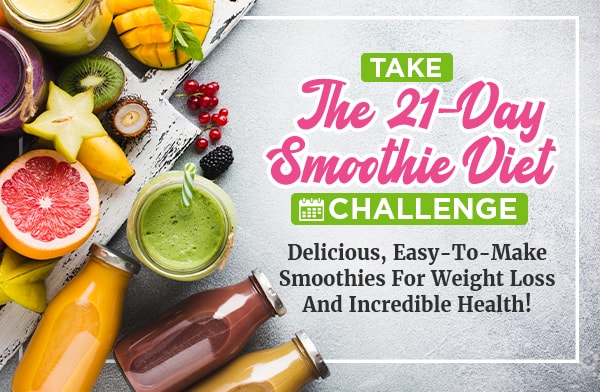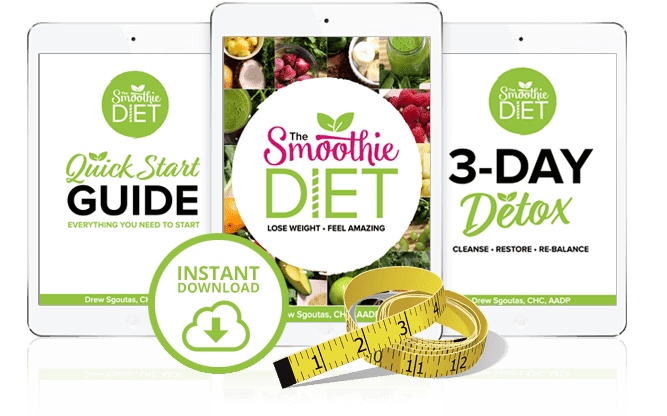Healthy Smoothies: What is The Best Milk For Smoothies?
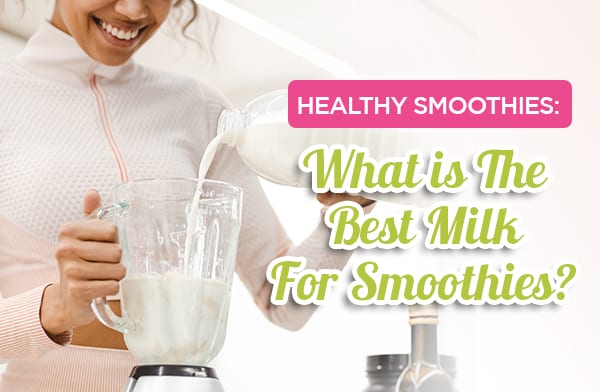
So, what’s the current conversation around milk? It doesn’t seem that long ago that tv ads about milk were popular and featured cute kids (and sometimes adults) wearing a milk mustache. Clearly, this ad campaign pushed the idea that drinking cow’s milk was the way to be healthy and grow tall and strong by getting the calcium you need.
During World War II, we needed to boost milk production to make processed dairy products to send to soldiers overseas. But farmers weren’t producing enough to meet this demand because they weren’t getting paid enough. So the government decided, “Great, we’ll create demand for milk by giving cow’s milk to our kids, and that way we’ll have a demand for the fluid milk, and we can make the processed products we need for soldiers.”
That started the great school milk program, and if you don’t remember that, it’s likely your parents and some of your grandparents do.
We All Need Calcium
The National Dairy Council used to say that the average adult needs 1,000 mg of calcium per day. That amount increased to 1,200 mg per day for women over the age of 50 and men over 71.
But more recent studies from Harvard Medical School tell us that calcium and vitamin D are essential in building bone. They’ve found that getting 700 mg of calcium from food every day should be enough.
And if you still think drinking milk is the best way to get the calcium you need to have strong bones, you’re in for a surprise.
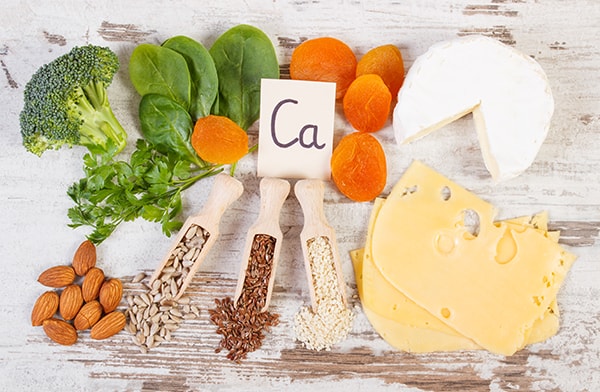
If you eat and drink the following foods over the course of one day, you’ll get a total of about 1,000 mg of calcium:
- Two slices of rye bread or whole-grain bread
- Two slices of gouda, edam or emmental cheese
- One serving of broccoli
- Two glasses of mineral water
- One 200 gram serving of yogurt
Or, if you want to get your daily intake of calcium from produce, you can easily do so with these calcium-packed veggies. Throw them in your smoothie if you don’t enjoy the idea of eating them:
- 8 oz of frozen collard greens = 360 mg
- 8 oz of broccoli rabe = 200 mg
- 8 oz of frozen kale = 180 mg
Three ounces of canned sardines are also powerhouses when it comes to calcium at 325 mg, while three ounces of salmon provide 180 mg of calcium. Two tablespoons of dried, ground basil have almost the same amount of calcium as a glass of milk.
I’m not suggesting you add fish or basil to your smoothie; just showing you how thinking that milk is the go-to place to get calcium in your diet is misplaced. Even the National Dairy Council has acknowledged that foods like kale, bok choy, and broccoli all have higher calcium absorption rates than milk.
They now focus on arguing that milk and milk products are the most convenient form of calcium. But that’s not even true any longer.
Enter the Lactose Intolerant
Now it’s 2022, and the new buzzword is “lactose intolerant.” Boston Children’s Hospital reports that 30 to 50 million Americans have this intolerance to the lactose in milk.
Eighty percent of all African-Americans and Native Americans are lactose intolerant. Over ninety percent of Asian-Americans are lactose intolerant, while it is least common among Americans with a Northern European heritage.

Lactose intolerance is when your body can’t break down or digest lactose. Lactose is a sugar found in milk and milk products.
Lactose intolerance happens when your small intestine doesn’t make enough of a digestive enzyme called lactase. It breaks down the lactose in food so your body can absorb it.
People who are lactose intolerant have unpleasant things happen after they drink milk or eat milk products. They bloat, have diarrhea, and pass embarrassing gas.
Is There Any Good News for Cow’s Milk?
As the only animal to drink the milk of another species, humans have an unusual relationship with the white stuff. Most other animals are weaned off milk once they start to need more complex foods. Why do humans keep drinking it?
Cow’s milk is a good source of protein and calcium, as well as nutrients including vitamin B12 and iodine. It also contains magnesium, which is important for bone development and muscle function. Whey and casein that are found in milk help to lower blood pressure.
But having a calcium-rich diet hoping that it will keep your bones from breaking just isn’t found in the evidence. Some research suggests that milk can actually contribute to fracture risk. One study in Sweden found that women who drank more than 200 milliliters of milk daily — less than one glass — had a higher risk of fractures.
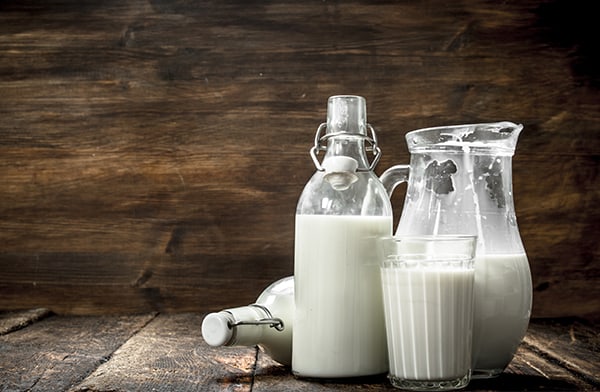
Another concern around milk in recent decades is the hormones we get when we drink cow’s milk. Cows are milked when they’re pregnant, and that’s when their estrogen levels increase 20-fold.
Although one study linked these estrogen levels to breast, ovarian and uterine cancers, Laura Hernandez, who studies lactation biology at the University of Wisconsin, says ingesting hormones through cow’s milk is nothing to worry about. After all, “Human milk has hormones in it, too – it’s part of being a mammal,” she says.
Studies have also found a link between milk intake and heart disease due to milk’s saturated fat content. But whole milk only contains around 3.5% fat, semi-skimmed around 1.5%, and skimmed milk 0.3% — while unsweetened soy, almond, hemp, coconut, oat, and rice drinks have lower levels of fat than whole milk.
Milk Alternatives
Just walk down any grocery store aisle to see plenty of milk alternatives like ones made with:
- Hemp
- Oats
- Almonds
- Coconuts
- Soy
The main ingredient is processed and diluted with water and other ingredients, including stabilizers like gellan gum and locust bean gum.
Deciding whether to drink cow’s milk or one of the many alternatives can be confusing because there are so many options. Picking your go-to milk or milk alternative for your smoothie isn’t a question of what’s considered unhealthy or healthy, but by looking at the nutritional information of each and deciding which drink is best for you.
Hemp Milk
Hemp milk is made from ground, soaked hemp seeds, which do not contain the psychoactive component of the Cannabis sativa plant. The seeds are high in protein and healthy omega-3 and omega-6 unsaturated fats. Hemp milk contains a slighter high amount of these nutrients than other kinds of plant-based milk.
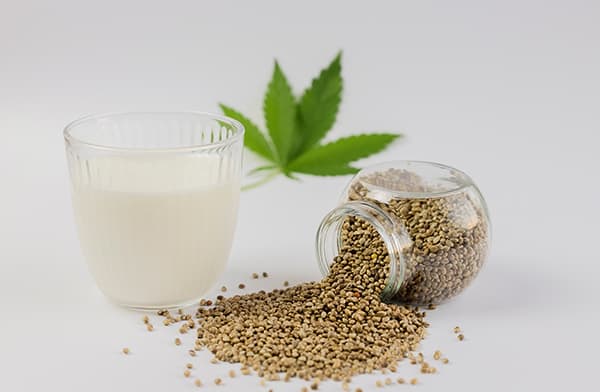
An 8-ounce (240-ml) serving of hemp milk provides the following:
- 60 calories
- 3 grams of protein
- Zero carbs
- 5 grams of fat
- 25% of the daily value of phosphorus
- 20% of the daily value of calcium
- 15% of the daily value of magnesium
- 10% of the daily value of iron
Hemp milk is virtually carb-free, but some brands add sweeteners, which increase the carb content. Make sure to check the ingredient label and buy hemp — and any other plant milk — without added sugar.
Oat Milk
Though drinking milk made by soaking whole oats doesn’t offer quite the same health benefits as eating a bowl of whole-grain oats, it is very nutritious.
Oat milk is naturally sweet and high in carbs. It’s unusual in that it contains some soluble fiber, which makes oat milk a bit creamier.
Soluble fiber absorbs water and turns into a gel during digestion, which helps slow digestion and keeps you full for longer. It can also help stabilize your blood sugar levels. What’s more, the soluble fiber in oat milk may reduce your cholesterol levels.
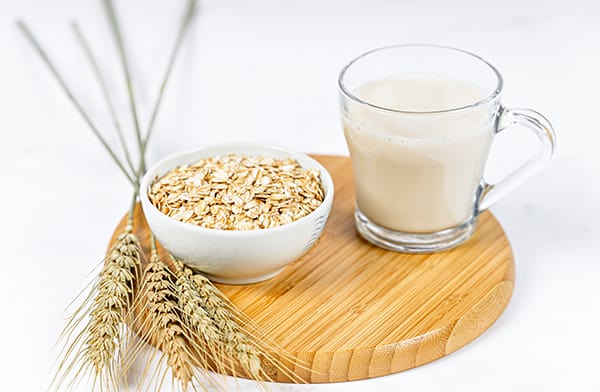
Although nutritional values can vary by brand and depending on how or whether the milk is fortified, an 8-ounce (240-ml) serving of oat milk provides the following:
- 120 calories
- 3 grams of protein
- 16 grams of carbs
- 2 grams of fiber
- 5 grams of fat
- 50% of the daily value of B12
- 46% of the daily value of riboflavin
- 27% of the daily value of calcium
- 22% of the daily value of phosphorus
- 18% of the daily value of vitamin D
- 18% of the daily value of vitamin A
Almond Milk
Almond milk is made by soaking almonds in water and then blending and straining away the solids. It’s a tasty nondairy milk alternative for people who either can’t tolerate or choose not to drink dairy milk, but it’s not safe if you have a tree nut allergy.
Unsweetened almond milk is low in calories and much lower in carbs than cow’s milk, making it a good choice if you follow a lower-carb diet. But many brands contain added sugar, so always check the ingredient label and avoid the sweetened ones.
Although almond milk is a naturally good source of the antioxidant vitamin E, it’s low in protein and many other nutrients. Many brands are fortified with calcium and vitamins A and D, but the amounts can vary by brand.

Many brands contain additives like carrageenan to thicken and prevent separation.
There’s some debate about whether carrageenan promotes intestinal inflammation and damage. But with most of the research on carrageenan and gut health conducted in animals and labs so far, it’s not really conclusive.
On average, an 8-ounce (240-ml) serving of unsweetened almond milk provides the following:
- 41 calories
- 1 gram of protein
- 2 grams of carbs
- 3 grams of fat
- 50% of the daily value of vitamin E
Coconut Milk
Coconut milk is squeezed from the white flesh of a coconut. It has a pleasant flavor, and it’s a good nondairy milk alternative that’s safe if you have a tree nut allergy.
Most coconut milk packaged in cartons is blended with water to give it a consistency similar to that of cow’s milk. It then has even less protein than almond milk, which is why many brands fortify the milk with additional nutrients like vitamins B12, D, A, and some minerals. The type and amount of nutrients added can vary among brands, so make sure you compare the labels.
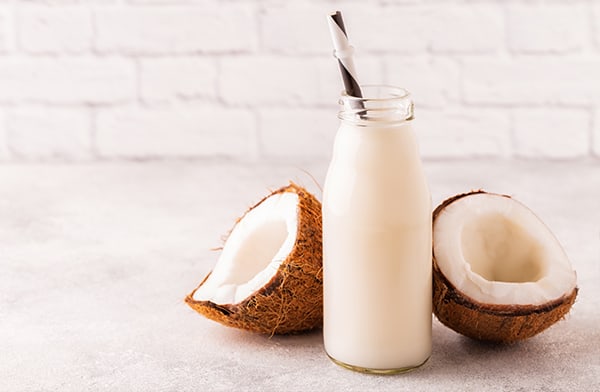
You can also use canned coconut milk. It tends to be higher in fat, is unfortified, and has a much more distinctive coconut flavor. Coconut milk is a bit higher in fat than other kinds of plant milk, but the medium-chain triglycerides (MCTs) in coconuts are linked to some heart health benefits, such as higher HDL (good) cholesterol levels.
An 8-ounce (240-ml) serving of an unsweetened coconut milk beverage provides the following:
- 46 calories
- Zero protein
- 1 gram of carbs
- 4 grams of fat
Soy Milk
Nutritionally, soy milk comes closest to cow’s milk. This is partly because soybeans are an excellent source of complete protein and because it’s fortified so that their nutritional profile closely resembles that of milk.
Soy is a great option if you avoid dairy but want a milk beverage that’s higher in protein.
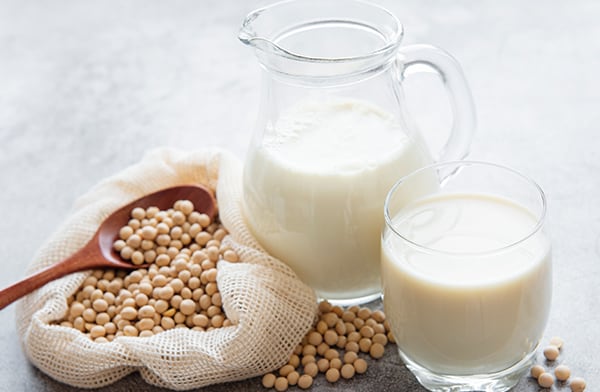
An 8-ounce (240-ml) serving of unsweetened soy milk provides the following:
- 105 calories
- 6 grams of protein
- 12 grams of carbs
- 4 grams of fat
- 34% of the daily value of vitamin B12
- 30% of the daily value of calcium
- 26% of the daily value of riboflavin
- 26% of the daily value of vitamin D
- 10% of the daily value of phosphorus
You’ve probably heard the controversy around soy, as most soybeans grown in the United States are genetically modified to resist the herbicide glyphosate. In spite of that, regularly consuming soy is linked to health benefits, including improved cholesterol and blood pressure levels.
Some brands produce organic soymilk, which is made from non-genetically modified organism (non-GMO) soybeans and are guaranteed to be free from conventional pesticides and herbicides.
Cow’s Milk
In all fairness to cow’s milk, here’s the nutritional value an 8-ounce (240-ml) serving of cow’s milk provides:
- 149 calories
- 8 grams of protein
- 12 grams of carbs
- 8 grams of fat
- 24% of the daily value of vitamin D
- 28% of the daily value of calcium
- 26% of the daily value of riboflavin
- 22% of the daily value of phosphorus
- 18% of the daily value of vitamin B12
- 13% of the daily value of selenium
So, again, picking your go-to milk or milk alternative for your smoothie (or the rest of your diet) isn’t a question of what’s considered unhealthy or healthy, but by looking at the nutritional information of each and deciding which drink is best for you.
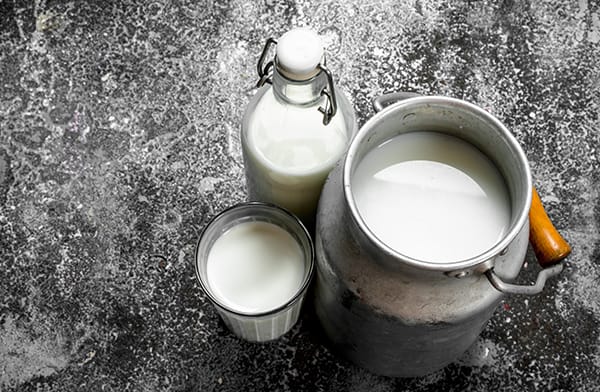
This isn’t an exhaustive list of plant-based milk. There are milk alternatives made from cashews, hazelnuts, macadamia nuts, flax, and rice. Just a note that rice milk is highly starchy. One cup contains 33 grams of carbs — three to four times the amount in cow or soy milk.
If you have diabetes, adding rice milk to your smoothies can cause a sudden sugar overload, so you’re better off with plant-based milk if you’re avoiding cow’s milk.
Now, over to you. What do you think is the best milk to add to your smoothies? Or are you someone who avoids any milk and milk alternative and just sticks with coconut water to give your smoothie the consistency you’re looking for?
Let me know!
